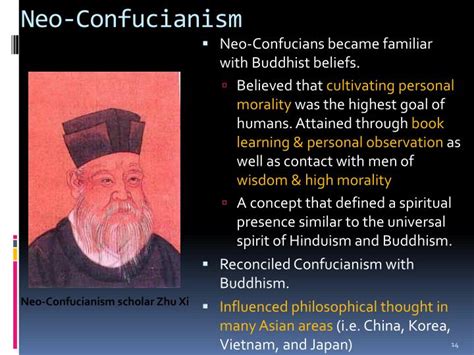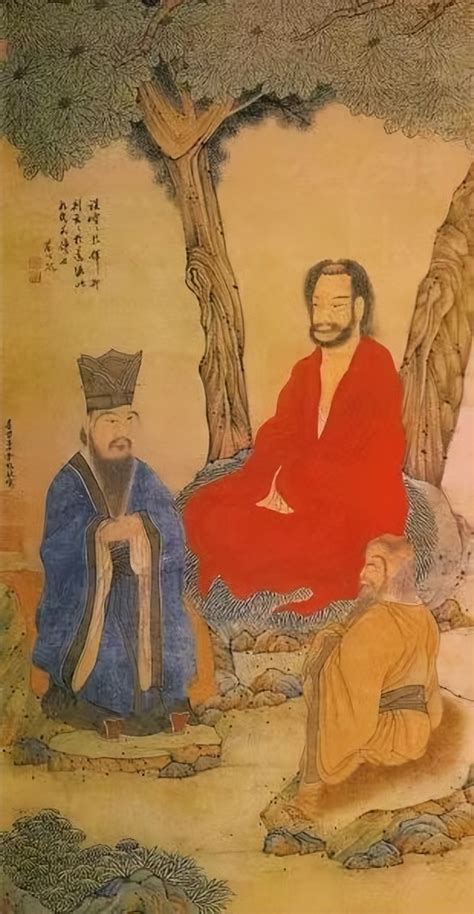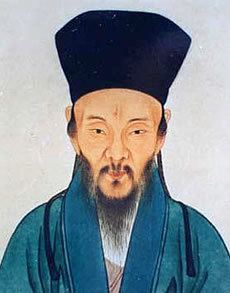What Is Neoconfucianism

Neoconfucianism, also known as Daoxue (School of the Way) or Lixue (School of Principles), is a philosophical movement that emerged in China during the Song dynasty (960-1279 CE) and significantly influenced East Asian thought for centuries. It revitalized and reinterpreted the ancient Confucian teachings, adapting them to the intellectual and social landscape of the time. This movement not only shaped the cultural and ethical fabric of East Asian societies but also left a profound impact on their political and social structures, making it a pivotal period in the history of Asian philosophy.
The Emergence and Key Principles of Neoconfucianism

Neoconfucianism emerged as a response to the social and political challenges of the late Tang and early Song dynasties. During this period, China faced invasions, political instability, and a growing divide between the wealthy and the poor. Confucian scholars, such as Zhou Dunyi, Zhang Zai, Cheng Yi, and Cheng Hao, sought to address these issues by reinterpreting and revitalizing the Confucian classics.
One of the central concepts of Neoconfucianism is Li, often translated as "principle" or "reason." Li is believed to be the fundamental order or pattern that underlies the universe and all phenomena. It is through the understanding and alignment with Li that individuals can achieve personal and social harmony. Another key concept is Qi, which refers to the vital energy or substance that composes all things. Qi is seen as the material force that gives form to Li.
Neoconfucian scholars also emphasized the importance of self-cultivation and moral rectitude. They believed that by refining one's character and aligning personal conduct with Li, individuals could contribute to the overall harmony and well-being of society. This focus on personal moral development became a cornerstone of Neoconfucianism, shaping the ethical and philosophical landscape of East Asia for centuries.
The Development and Key Figures of Neoconfucianism

The development of Neoconfucianism can be traced through several key figures and their philosophical contributions. One of the earliest and most influential thinkers was Zhou Dunyi (1017-1073), often referred to as the “first true Neoconfucian.” Zhou’s work, “Taijitu Shuo” (Explanation of the Diagram of the Supreme Ultimate), laid the foundation for Neoconfucian metaphysics. He presented a cosmological model based on the interplay of Yin and Yang, the two fundamental forces of the universe, and the concept of Li.
Zhang Zai (1020-1077), a contemporary of Zhou Dunyi, further developed the concept of Li in his work "Xing Ming Shu" (On Nature and Life). Zhang argued that Li is the fundamental substance of the universe and that all things are manifestations of Li. He also emphasized the importance of moral cultivation and the unity of Heaven, Earth, and humanity.
The Cheng brothers, Cheng Yi (1033-1107) and Cheng Hao (1032-1085), made significant contributions to Neoconfucianism. Cheng Yi focused on the study of the classics and emphasized the importance of moral education and self-cultivation. He believed that by understanding the principles of Li, individuals could lead virtuous lives and contribute to a harmonious society. Cheng Hao, on the other hand, focused on the emotional and spiritual aspects of Neoconfucianism. He argued that the key to understanding Li lies in the heart and that personal cultivation should be guided by sincerity and empathy.
These early Neoconfucian thinkers laid the groundwork for the development of the movement, and their ideas were further refined and expanded upon by later scholars. The Song dynasty saw a flourishing of Neoconfucian thought, with numerous scholars contributing to its philosophical richness.
Neoconfucianism’s Impact on East Asian Thought and Society
Neoconfucianism had a profound and lasting impact on East Asian thought and society. Its emphasis on moral cultivation and the alignment of personal conduct with universal principles influenced the ethical and philosophical frameworks of China, Korea, and Japan. Neoconfucianism provided a comprehensive system of thought that guided personal and social conduct, shaping the cultural values and social norms of these societies.
In China, Neoconfucianism became the dominant philosophical tradition during the Ming (1368-1644) and Qing (1644-1912) dynasties. It was adopted as the official state ideology, and its principles were integrated into the civil service examination system. This ensured that Neoconfucian ideals permeated all levels of society, from the ruling elite to the common people.
In Korea, Neoconfucianism, known as Seongnihak, played a crucial role in shaping the country's social and political structures. It influenced the formation of the Joseon dynasty (1392-1897) and became the dominant ideology, guiding the country's educational, social, and political systems. The Korean interpretation of Neoconfucianism emphasized the importance of loyalty, filial piety, and the maintenance of social hierarchy.
In Japan, Neoconfucianism, known as Shushigaku, was adopted during the Edo period (1603-1868) and became a key component of the social and political order. It influenced the development of the samurai code of ethics, known as Bushido, and shaped the social and cultural norms of Japanese society. Neoconfucianism in Japan emphasized the importance of loyalty, self-discipline, and respect for authority.
The Influence of Neoconfucianism in Modern Times
While Neoconfucianism faced challenges during the modern era, with the rise of Western thought and ideologies, its influence persists in East Asian societies. In recent years, there has been a renewed interest in Neoconfucian thought, particularly in the context of modern ethical and philosophical debates. Scholars and thinkers have revisited Neoconfucianism to explore its relevance and applicability in contemporary society.
One area where Neoconfucianism continues to have an impact is in the realm of ethics and moral philosophy. Its emphasis on self-cultivation, moral rectitude, and the alignment of personal conduct with universal principles offers a unique perspective on ethical dilemmas and social issues. Neoconfucian ideas on the importance of virtue, empathy, and social harmony provide a valuable framework for ethical reflection and decision-making.
Furthermore, Neoconfucianism has influenced modern social and political theories. Its concepts of social order, hierarchy, and the importance of moral leadership have shaped the way East Asian societies approach governance and social organization. While Neoconfucianism has evolved and adapted to modern contexts, its core principles and values continue to inform and shape the intellectual and cultural landscape of East Asia.
Neoconfucianism’s Legacy and Future Directions

The legacy of Neoconfucianism is vast and multifaceted. It has shaped the intellectual, cultural, and ethical foundations of East Asian societies for centuries. Its influence can be seen in the philosophical, social, and political traditions of China, Korea, and Japan. Neoconfucianism’s focus on personal moral development, social harmony, and the alignment with universal principles has left an indelible mark on the region’s thought and culture.
As East Asian societies continue to evolve and navigate the complexities of the modern world, Neoconfucianism offers a rich philosophical tradition to draw upon. Its principles and values can provide guidance and insight into contemporary ethical, social, and political challenges. By engaging with Neoconfucian thought, scholars, thinkers, and policymakers can explore new directions and approaches that are grounded in this rich philosophical heritage.
Furthermore, the study and interpretation of Neoconfucianism continue to be an active area of research and scholarship. Scholars from diverse disciplines, including philosophy, history, and cultural studies, contribute to the ongoing dialogue and exploration of Neoconfucian ideas. This ongoing engagement ensures that Neoconfucianism remains a living and evolving tradition, relevant to the present and future.
What are the key differences between traditional Confucianism and Neoconfucianism?
+While both traditions share a common philosophical heritage, Neoconfucianism emerged as a reinterpretation and revival of Confucian thought. Traditional Confucianism focused on social order, rituals, and ethical conduct, while Neoconfucianism placed greater emphasis on metaphysical concepts like Li and Qi, as well as personal moral cultivation.
How did Neoconfucianism influence the civil service examination system in China?
+Neoconfucianism became the dominant ideology during the Ming and Qing dynasties, and its principles were integrated into the civil service examination system. This ensured that Neoconfucian ideals were disseminated throughout society, as candidates for government positions had to demonstrate their knowledge and understanding of Neoconfucian thought.
What is the relevance of Neoconfucianism in modern East Asian societies?
+Neoconfucianism continues to influence modern East Asian societies, particularly in the areas of ethics, moral philosophy, and social organization. Its principles provide a valuable framework for addressing contemporary social and ethical challenges, and its legacy shapes the cultural and intellectual landscape of the region.



